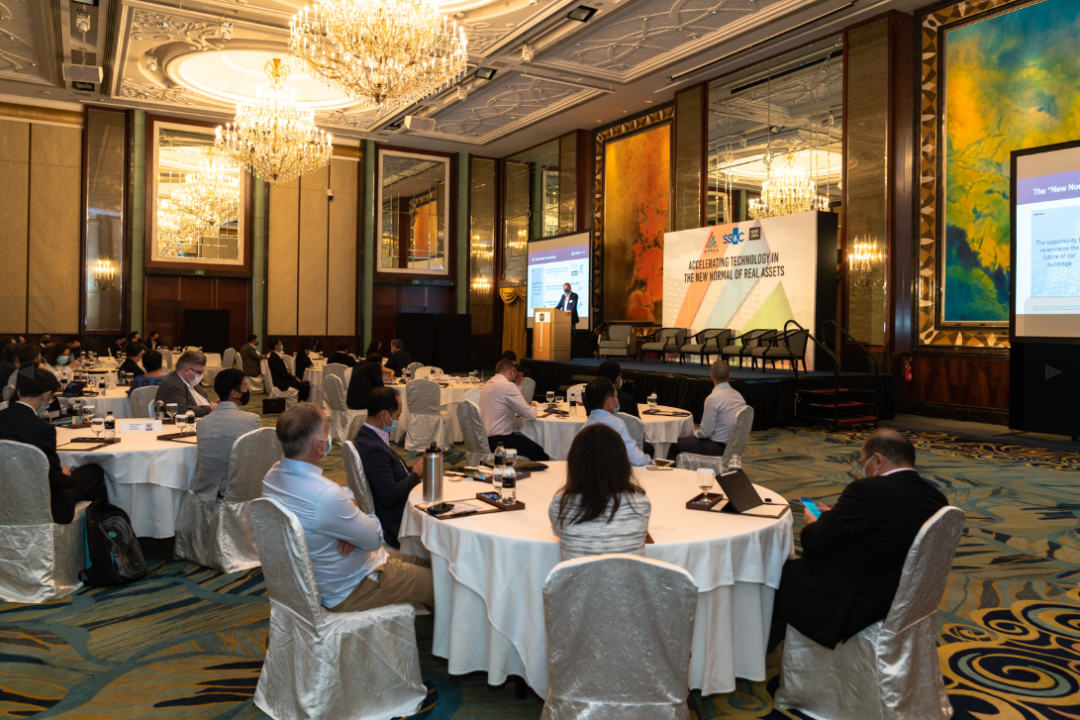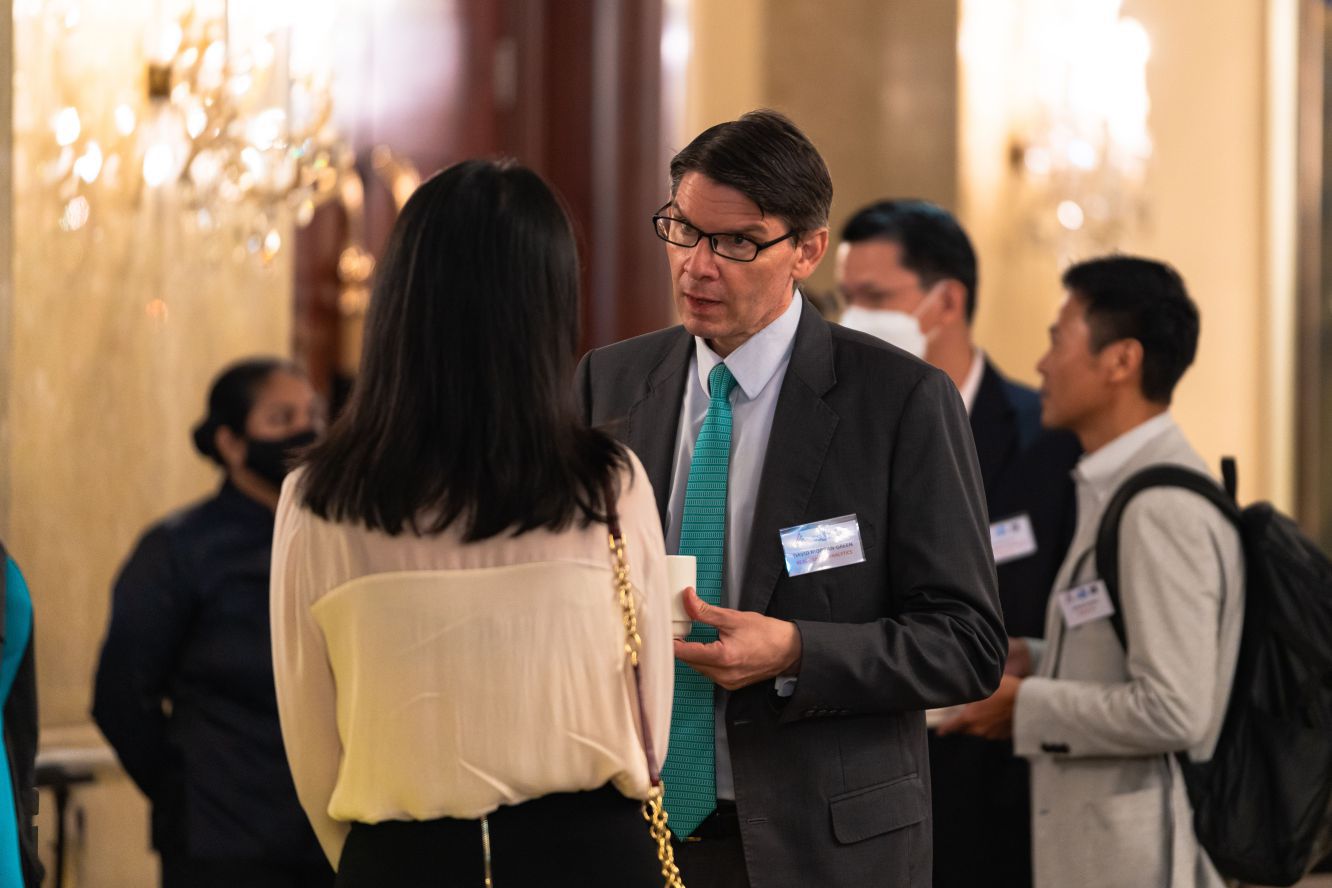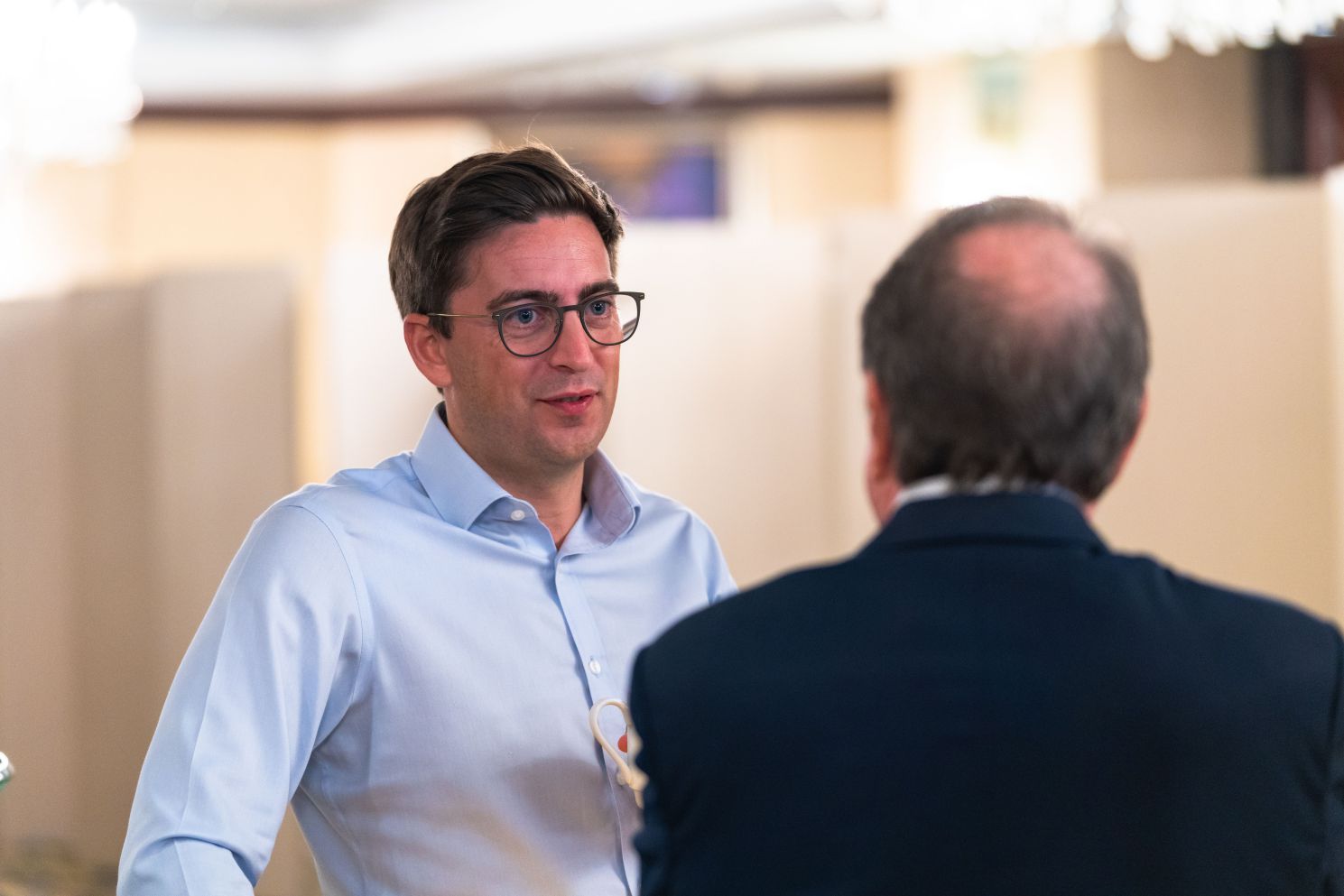Big Data to ESG, Tech Is Shaking Up Everything
Technology is reshaping the real assets industry, generating a wide range of challenges and opportunities from the rise of retail investors to an explosion of property data, according to executives at a recent event hosted by the Asia Pacific Real Assets Association (APREA).
“I believe we’re on the cusp of a massive transformation in our industry,” said David Fassbender, managing director and head of South East Asia at PGIM Real Estate, in a keynote presentation. “A necessary transformation that has long been overdue for an industry where business and operating models have largely remained unchanged for decades.”
Jointly organized by APREA, SS&C and Intralinks, the livestreamed event, “Accelerating Technology in the New Normal of Real Assets,” addressed how the Asia Pacific real assets industry is charting a path to recovery following the disruptions of COVID-19. The pandemic acted as an accelerant for many of the changes already underway in the sector, which include a growing understanding of the risks of climate change, Fassbender noted.


The “new normal” includes four primary themes, the executive argued. First, macroeconomic changes and new technologies are forcing the real estate industry to reconsider legacy spaces, shaking up the retail and office sectors and driving the institutionalization of many niche assets. Co-living, student housing and self-storage all benefit from the smart use of technology, he added.
Second, a tidal wave of real estate data – too often unstructured and siloed – presents a growing challenge for the industry. “Getting control of one’s data – collecting, storing, and analyzing it – is in my opinion the single most urgent task for all real estate firms,” Fassbender said.
Third, the emergence of retail investors creates a major opportunity for new market entrants as well as established players. There is a “massive untapped pool of retail investors, especially in Asia Pacific,” Fassbender said, adding that he was excited about the opportunity to eventually offer cheap access to institutional-grade real estate for as little as $100.
Finally, ESG (Environmental, Social and Governance) targets, a big topic in Europe and parts of Asia for many years, are gaining steam in the region, with significant new legislation and regulations that make it harder for companies to operate without a clear framework in place.
Fassbender offered some insights on how PGIM Real Estate is helping lead the industry through these changes, by leveraging its global innovation team, venture capital relationships, real estate innovation councils and property technology teams. The company, which has roughly $190.4 billion in assets under management and administration, is also investing in proptech firms such as Australia’s Taronga Ventures, an investment platform focused on emerging real estate.
Winning Strategies for Asia Pacific Real Estate
Top real estate and finance executives gathered in Singapore to discuss the opportunities and challenges ahead for the region’s real estate industry at an event hosted by the Asia Pacific Real Assets Association (APREA).
Jointly organized by APREA, SS&C and Intralinks, the event, “Accelerating Technology in the New Normal of Real Assets,” the livestreamed event covered a wide range of issues transforming the industry, from real estate data to ESG (Environmental, Social and Governance) goals, and featured a keynote address by David Fassbender, managing director and head of South East Asia at PGIM Real Estate.
During a subsequent panel discussion moderated by Greg Hyland, head of capital markets, Asia Pacific at CBRE, Hyland noted that the global brokerage is seeing a “substantial rebound in transaction activity” in the first half of the year, though it’s led by logistics and multifamily, whereas office investment is beginning to return and hospitality and retail are lagging.
Oi Yee Choo, chief commercial officer at ADDX, homed in on another type of real estate investing, noting that the Singaporean digital securities exchange firm continues to see significant real estate demand. Choo suggested that retail investment is not far away and compared the emergence of blockchain technology to the birth of electronic trading and the REIT revolution in terms of their impact on capital markets.
Regarding ESG initiatives, Choo said the firm is looking at opportunities to serve green bonds on the ADDX platform and help small- and medium-sized enterprises develop that space. But, she added, a lack of supply of compelling products is an ongoing problem for the growth of the ESG sector.
Speaking on the same panel, Peter Young, co-founder and CEO of Q Investment Partners (QIP), explained that the firm is heavily invested in purpose-built student accommodation and co-living in overseas markets. QIP focuses on addressing housing affordability for students and young professionals, as well as mental health and well-being, he added.
“International students are finding it challenging to come back, but on the whole we’re seeing the new norms evolving and students returning,” Young said, referring to the COVID crisis.
Jyoti Ramchandani, managing director and SCORE+ fund manager at SC Capital Partners, noted that key factors driving strong performance include an increased focus on income-generating assets and a flight to safety and quality. She added that the core-plus fund, which includes 15 real estate assets across Asia Pacific, is investing in growth sectors that are benefiting from the increasing use of technology. “In our portfolio, Korean logistics has really been the key winner,” she said.
Rounding off the panel, Frank Khoo, group chief investment officer of City Developments Limited (CDL), described the company’s strategy of building deep domain knowledge and putting people on the ground to develop projects in various markets as the firm expands globally.
CDL focuses on commercial, built-to-sell residential and hotel assets. On the commercial side, the company is seeing resilience despite weak leasing demand, while the PRS (private rented sector) has performed very well – in line with pre-COVID underwriting, Khoo said.
As a technology driven service provider, SS&C Intralinks have seen an increased demand from fund managers to engage with them right from the fund conceptualization stage. We have assisted funds through their capital raising efforts, from setting up their due diligence data rooms to facilitating investor on-boarding digitally to ensuring accurate allocations and rebalancing through the multiple closings.
Manual processes and spreadsheet-based systems are not able to support the collection and normalization of data to report on performance, provide enhanced analytics, and adequately account for underlying investments. In these changing times, businesses are looking to partner with a robust proprietary tech-enabled service provider with the systems and know-how to keep operations running smoothly, from day-to-day accounting and investor reporting to sophisticated portfolio analytics, compliance and ESG reporting. Such partnerships enable asset managers to focus on identifying opportunities and making informed decisions in an ever-changing and evolving market.” said Ashish Shah Director of Private Markets Group, SS&C Fund Services (Asia) Pte Ltd.







